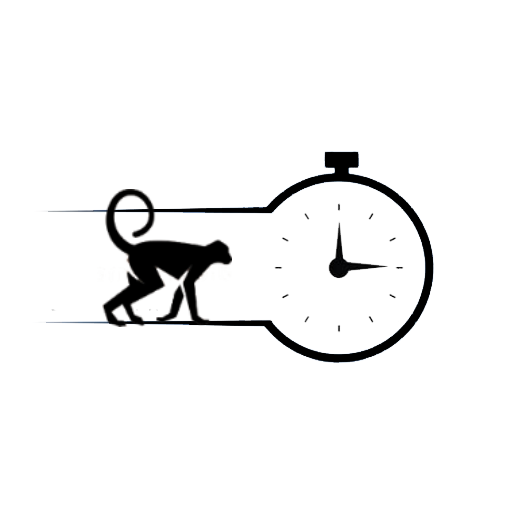In the realm of quirky internet memes, bizarre phrases, and playful word games, few terms have achieved the same level of mystery and humor as “Silly Wankok.” You might not find it in any dictionary, but its presence has grown steadily in certain corners of the web. So, what exactly is “Silly Wankok,” and how did it come to embody such a strange yet oddly appealing connotation?
The Origins of “Silly Wankok”
While it’s difficult to pinpoint an exact moment in time when “Silly Wankok” emerged into the online lexicon, the phrase seems to have been born from the ever-evolving culture of online trolling and absurd humor. “Wankok” itself has no inherent meaning, though it is believed to be a playful and intentional misspelling or mash-up of several words. Some theorists suggest it’s a distorted version of “wanker”—a British slang term used to describe someone who is being foolish or self-absorbed—combined with “cock,” another cheeky and somewhat vulgar term.
The word “silly,” of course, is a well-known adjective used to describe something lighthearted, foolish, or absurd. Together, “Silly Wankok” forms a peculiar but amusing phrase that sounds like an insult but is clearly meant in good-natured jest.
The Appeal of Absurdity
The success of phrases like “Silly Wankok” lies in their absurdity. Internet culture thrives on creating and sharing inside jokes that are so nonsensical that they become funny simply because of their randomness. In a digital age where virality is often driven by quick wit and shock value, the ridiculousness of a phrase like “Silly Wankok” adds a layer of whimsy to otherwise mundane online interactions. It’s an invitation to laugh at the sheer silliness of the expression itself rather than focusing on any actual meaning.
The unpredictability of such phrases is also part of their charm. They can appear in various contexts—tweets, meme captions, YouTube comments, or casual chats between friends—often to lighten the mood or poke fun at something trivial. The word’s lack of a fixed definition gives it a certain flexibility, making it a useful tool for those who enjoy humor that’s not bound by conventional norms.
The Memeification of “Silly Wankok”
As with many internet phrases, “Silly Wankok” has gone through a process of memeification. Initially, it may have appeared as a one-off comment or a playful insult in a specific online community. However, once people began to recognize its potential for comedy, it quickly spread. Like most memes, its popularity can be traced to its ability to evolve. People began to share it, remix it, and combine it with other phrases, often modifying it to fit specific humorous situations.
Meme creators and social media users often incorporate such words into their day-to-day online exchanges, turning them into punchlines, catchphrases, or even stand-alone jokes. The line between what is “funny” and “absurd” becomes more blurred, and before long, the phrase becomes entrenched in the collective imagination of internet users.
Is “Silly Wankok” a New Form of Linguistic Expression?
At its core, “Silly Wankok” embodies the playful and experimental spirit of modern internet linguistics. Online communication, particularly through social media, has led to the creation of countless new words, phrases, and abbreviations that only make sense within specific cultural contexts. Just as “yeet,” “lit,” or “fam” have taken on new meanings, “Silly Wankok” is a testament to the fluidity of language in the digital age.
The use of such non-standard expressions challenges traditional norms around language and communication. A single, meaningless phrase can serve as shorthand for a shared understanding or a form of collective humor. “Silly Wankok” is, in this sense, more than just a strange phrase—it’s a microcosm of the way the internet continues to evolve language in unexpected and delightful ways.
Conclusion
While “Silly Wankok” may not make it into any formal linguistic textbooks anytime soon, its existence highlights a key aspect of internet culture: the joy of playful absurdity. As long as the internet keeps churning out memes, inside jokes, and baffling expressions, we can expect to see more phrases like “Silly Wankok” pop up, always ready to spark laughter or confusion, depending on the audience.
At the end of the day, “Silly Wankok” is a reminder that sometimes, it’s okay to embrace the nonsensical and the silly. After all, in a world where everything is constantly changing, a little absurdity might be just what we need to keep things lighthearted.
FAQs: “Silly Wankok”
1. What does “Silly Wankok” mean?
The phrase “Silly Wankok” doesn’t have a clear or standard definition. It seems to be a playful, absurd expression born from internet humor. “Silly” suggests something lighthearted or foolish, while “Wankok” is likely a made-up or distorted version of words like “wanker” (a British insult) and “cock” (a vulgar term). Together, it forms a nonsensical phrase used to poke fun, often in a lighthearted or cheeky manner.
2. Where did “Silly Wankok” come from?
The exact origin of “Silly Wankok” is unclear, but it likely emerged in the world of online humor and trolling. As with many internet memes, its rise can be attributed to the culture of randomness and absurdity that thrives on platforms like Twitter, Reddit, and meme-sharing sites. The phrase probably gained popularity because of its ridiculousness and its flexible use in various contexts.
3. Is “Silly Wankok” an insult?
While “Silly Wankok” could be interpreted as an insult (due to the inclusion of “wanker”), it’s typically not used with malicious intent. Most of the time, it’s meant to be playful or humorous. The term is more about mocking something in a fun, silly way rather than seriously insulting someone.
4. How is “Silly Wankok” used in conversation?
“Silly Wankok” is often used in casual online conversations to express mild annoyance, amusement, or mockery in a humorous way. For example, if someone is acting particularly foolish or making an obviously silly mistake, one might jokingly refer to them as a “Silly Wankok.” It’s often used among friends or in online communities where the tone is lighthearted and playful.
5. Why do people like using phrases like “Silly Wankok”?
The appeal of phrases like “Silly Wankok” lies in their absurdity and randomness. In internet culture, humor thrives on the unexpected, and using such an outlandish phrase can instantly lighten the mood or make people laugh simply because it’s so nonsensical. Additionally, the flexibility of the phrase allows it to be adapted for many different contexts, making it a fun and versatile tool for joking around.
6. Is “Silly Wankok” a meme?
Yes, “Silly Wankok” has definitely been meme-ified! Like many memes, it grew in popularity as people shared it, modified it, and used it in creative ways. Memes are often born out of random, humorous phrases like this one, which catch on quickly in online communities.
7. Can “Silly Wankok” be used outside of the internet?
While “Silly Wankok” originated online, there’s no reason it can’t make its way into casual real-life conversation, especially in communities or among groups of friends who enjoy the absurd humor. However, because it’s a term that plays on certain vulgarities, it might not be appropriate for all audiences, especially in formal settings.
8. Does “Silly Wankok” have any cultural significance?
Not particularly. “Silly Wankok” is more of a product of internet culture than a term with any deep cultural or historical meaning. It’s an example of how online communities can create and popularize phrases that reflect the playful, absurd, and often boundary-pushing nature of the internet.











